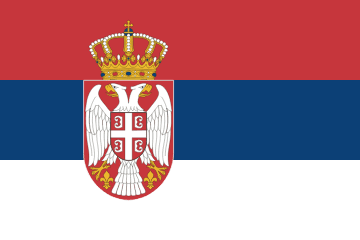In this project, Swedish and Serbian partners discussed the challenges we face in contemporary memorialization, education, and understanding of the Holocaust and the genocide of the Roma, with a particular focus on Holocaust distortion and abuse of history for nationalist and populist propaganda as a threat to democracy.
The project comprised a three-day study visit to Novi Sad, Belgrade, and Kragujevac in Serbia in October by a group of Swedish experts from the Swedish Holocaust Museum and the Living History Forum, followed by a three-day visit to Stockholm, Sweden in November by a Serbian group from Terraforming, the Serbian Jewish community, and the Memorial Museum in Kragujevac.
In Belgrade, the group visited the Memorial Center “Staro Sajmiste,” the History Department at the Faculty of Philosophy University of Belgrade, and met with secondary school teachers. We discussed the contemporary approaches and challenges to Holocaust education and commemoration. We participated in a discussion forum, “Holocaust Distortion and Contemporary Memorialization,” with history students at the Faculty of Philosophy at the University of Belgrade.
In Kragujevac, we visited the Memorial Museum “October 21” and discussed the Museum’s pedagogical practices. In the Memorial Park in Kragujevac, we took part in the official public commemoration of the National Remembrance Day of the Serbian Victims of WWII, marking the anniversary of the massacre of local civilians committed by Germans in 1941.
In Stockholm, we visited the Living History Forum and had presentations and a roundtable discussion about their study material, “Difficult Questions in the Classroom.” The Living History Forum had a presentation and discussions about digital communication and their digital tool “Democracy Step by Step.” We also had a historical walk in relation to the Holocaust and a guided tour with pedagogical reasonings of their exhibitions “Propaganda” and “Children Also Have Rights”. On our second day in Stockholm, we visited the Swedish Holocaust Museum and had a guided tour of their exhibition “Seven Lives” and the pedagogical thoughts behind it. We also had presentations and discussions about the importance of narratives in teaching about the Holocaust and what digital resources the museum has to support education about the Holocaust. The visit to Stockholm ended with a presentation and discussion about remembrance culture, ceremonies, and other activities connected to the subject.
The joint conclusion of the Swedish and Serbian partners is that in Serbia, Holocaust memorialization is sometimes abused to inflame nationalism, hatred, and fear, partly as a consequence of a lack of experience and knowledge of international norms and standards in Holocaust memorialization and partly as an expression of populist nationalism and anti-EU propaganda. Holocaust distortion and abuse of history are, at its core, an expression of contemporary antisemitism and intolerance. This also goes for the Roma genocide remembrance and contemporary antigypsyism. Holocaust memorialization in Serbia needs to be strengthened following the guidelines and recommendations of the International Holocaust Remembrance Alliance IHRA. But also in Sweden, there is a need for improvement of practices regarding the inclusion of minority voices in education and commemoration, shed more light on their experiences of consequences of the crimes, its connection to contemporary antisemitism and antigypsyism, and raise awareness about the dangers Holocaust distortion presents to democracy.



